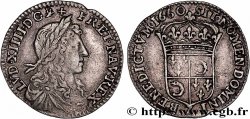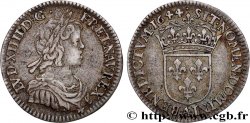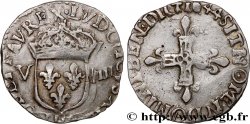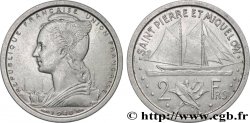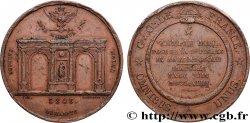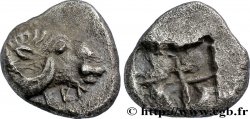Live auction - fme_412182 - LOUIS XIV "THE SUN KING" Médaille de l’arrivée en France Jacques VI
You must signin and be an approved bidder to bid, LOGIN TO BID. Accounts are subject to approval and the approval process takes place within 48 hours. Do not wait until the day a sale closes to register. Clicking on "BID" constitutes acceptance of the terms of use of cgb.fr private live auctions.
Bids must be placed in whole Euro amounts only. The sale will start closing at the time stated on the item description; any bids received at the site after the closing time will not be executed. Transmission times may vary and bids could be rejected if you wait until the last second. For further information check the Live auction FAQ
All winning bids are subject to a 18% buyer’s fee.
All winning bids are subject to a 18% buyer’s fee.
| Estimate : | 500 € |
| Price : | no bid |
| Maximum bid : | no bid |
| End of the sale : | 30 January 2018 16:53:50 |
Type : Médaille de l’arrivée en France Jacques VI
Date: 1689
Mint name / Town : UK, Londres
Metal : bronze
Diameter : 59,5 mm
Orientation dies : 12 h.
Engraver SMELTZING Johannes
Weight : 89 g.
Edge : lisse
Rarity : R2
Coments on the condition:
Intéressante médaille avec un défaut de métal au droit et une patine un preu hétérogène au homogène
Obverse
Obverse legend : IACOBUS II D. G. BRITANNIARUM IMPERATOR.
Obverse description : Buste à gauche de Jacques Stuart.
Reverse
Reverse legend : MAGNIS INTERDUM PARVA NOCENT - REGNO ABDICATO // 4 IAN 1689.
Reverse description : Renard tenant une torche dans la gueule, mettant le feu à l’arbre où est posé un aigle ; une colombe au-dessus du renard.
Commentary
Un exemplaire en argent, frappé avec les mêmes coins que notre médaille, a été vendu 3.000 US$ dans la vente TRITON XX.
Jacques Stuart (14 octobre 1633 - 16 septembre 1701) fut roi d'Angleterre et d'Irlande sous le nom de Jacques II et roi d'Écosse sous le nom de Jacques VII du 6 février 1685 jusqu'à son renversement lors de la Glorieuse Révolution trois ans plus tard.
Jacques était le second fils du roi Charles Ier et il accéda au trône à la mort de son frère Charles II. Son catholicisme, sa politique pro-française et ses ambitions absolutistes le rendirent très impopulaire et il dut affronter une opposition de plus en plus radicale de la part de l'élite religieuse et aristocratique anglaise. Lorsque sa seconde épouse Marie de Modène donna naissance à un fils, Jacques François Stuart, laissant présager la mise en place d'une dynastie catholique, les nobles anglais demandèrent l'aide du protestant Guillaume III d'Orange, son neveu qui avait épousé sa fille Marie. Ce dernier débarqua en Grande-Bretagne à la tête d'une armée hollandaise et Jacques II fut contraint de se réfugier en France. Le Parlement considéra que cette fuite équivalait à une abdication et accorda la couronne à Guillaume et Marie qui régnèrent conjointement à partir de 1689 sous les noms de Guillaume III et de Marie II. Jacques tenta de récupérer son trône en débarquant en Irlande mais ses partisans furent défaits lors de la bataille de la Boyne en juillet 1690. Il vécut le reste de sa vie en France soutenu par son cousin le roi Louis XIV..
Jacques Stuart (14 octobre 1633 - 16 septembre 1701) fut roi d'Angleterre et d'Irlande sous le nom de Jacques II et roi d'Écosse sous le nom de Jacques VII du 6 février 1685 jusqu'à son renversement lors de la Glorieuse Révolution trois ans plus tard.
Jacques était le second fils du roi Charles Ier et il accéda au trône à la mort de son frère Charles II. Son catholicisme, sa politique pro-française et ses ambitions absolutistes le rendirent très impopulaire et il dut affronter une opposition de plus en plus radicale de la part de l'élite religieuse et aristocratique anglaise. Lorsque sa seconde épouse Marie de Modène donna naissance à un fils, Jacques François Stuart, laissant présager la mise en place d'une dynastie catholique, les nobles anglais demandèrent l'aide du protestant Guillaume III d'Orange, son neveu qui avait épousé sa fille Marie. Ce dernier débarqua en Grande-Bretagne à la tête d'une armée hollandaise et Jacques II fut contraint de se réfugier en France. Le Parlement considéra que cette fuite équivalait à une abdication et accorda la couronne à Guillaume et Marie qui régnèrent conjointement à partir de 1689 sous les noms de Guillaume III et de Marie II. Jacques tenta de récupérer son trône en débarquant en Irlande mais ses partisans furent défaits lors de la bataille de la Boyne en juillet 1690. Il vécut le reste de sa vie en France soutenu par son cousin le roi Louis XIV..







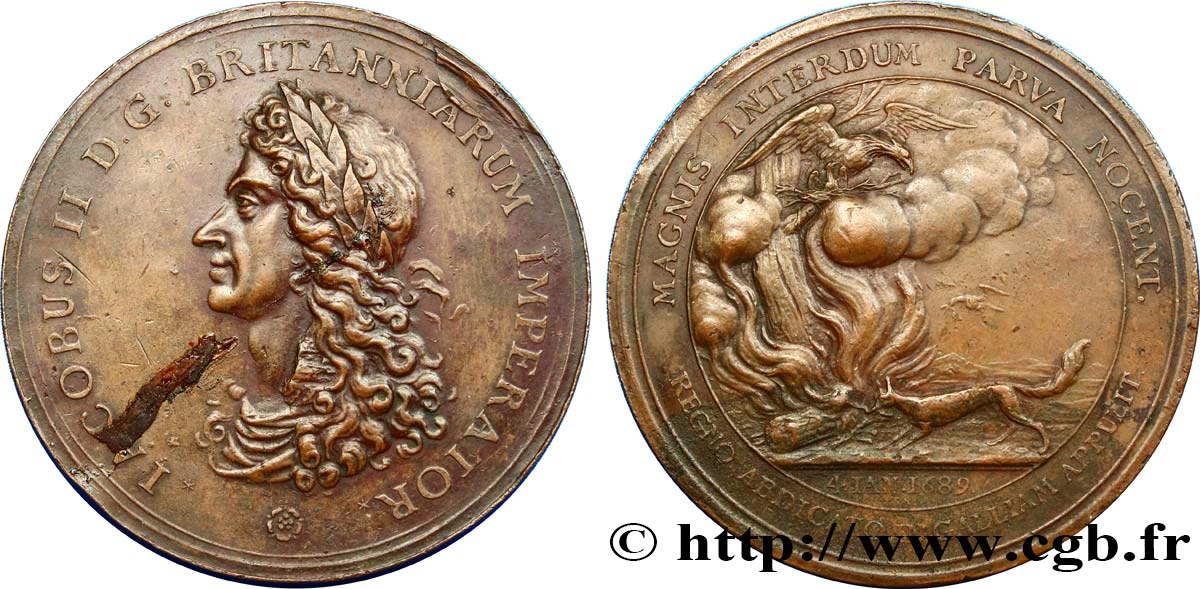
 Report a mistake
Report a mistake Print the page
Print the page Share my selection
Share my selection Ask a question
Ask a question Consign / sell
Consign / sell
 Full data
Full data

